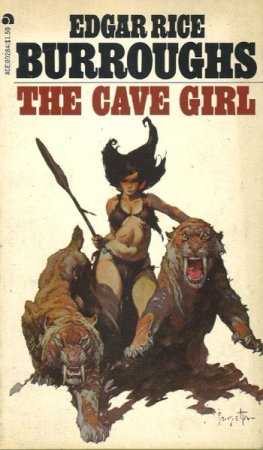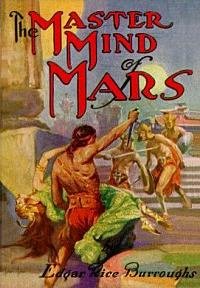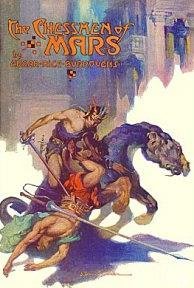Edgar Burroughs - Tarzan the Invincible
Here you can read online Edgar Burroughs - Tarzan the Invincible full text of the book (entire story) in english for free. Download pdf and epub, get meaning, cover and reviews about this ebook. genre: Adventure. Description of the work, (preface) as well as reviews are available. Best literature library LitArk.com created for fans of good reading and offers a wide selection of genres:
Romance novel
Science fiction
Adventure
Detective
Science
History
Home and family
Prose
Art
Politics
Computer
Non-fiction
Religion
Business
Children
Humor
Choose a favorite category and find really read worthwhile books. Enjoy immersion in the world of imagination, feel the emotions of the characters or learn something new for yourself, make an fascinating discovery.

- Book:Tarzan the Invincible
- Author:
- Genre:
- Rating:3 / 5
- Favourites:Add to favourites
- Your mark:
- 60
- 1
- 2
- 3
- 4
- 5
Tarzan the Invincible: summary, description and annotation
We offer to read an annotation, description, summary or preface (depends on what the author of the book "Tarzan the Invincible" wrote himself). If you haven't found the necessary information about the book — write in the comments, we will try to find it.
Tarzan the Invincible — read online for free the complete book (whole text) full work
Below is the text of the book, divided by pages. System saving the place of the last page read, allows you to conveniently read the book "Tarzan the Invincible" online for free, without having to search again every time where you left off. Put a bookmark, and you can go to the page where you finished reading at any time.
Font size:
Interval:
Bookmark:
Tarzan the Invincible
Edgar Rice Burroughs
Chapter 1: Little Nkima
I AM no historian, no chronicler of facts, and, furthermore, I hold a very definite conviction that there are certain subjects which fiction writers should leave alone, foremost among which are politics and religion. However, it seems to me not unethical to pirate an idea occasionally from one or the other, provided that the subject be handled in such a way as to impart a definite impression of fictionizing.
Had the story that I am about to tell you broken in the newspapers of two certain European powers, it might have precipitated another and a more terrible world war. But with that I am not particularly concerned. What interests me is that it is a good story that is particularly well adapted to my requirements through the fact that Tarzan of the Apes was intimately connected with many of its most thrilling episodes.
I am not going to bore you with dry political history, so do not tax your intellect needlessly by attempting to decode such fictitious names as I may use in describing certain people and places, which, it seems to me, to the best interest of peace and disarmament, should remain incognito.
Take the story simply as another Tarzan story, in which, it is hoped, you will find entertainment and relaxation. If you find food for thought in it, so much the better.
Doubtless, very few of you saw, and still fewer will remember having seen, a news dispatch that appeared inconspicuously in the papers some time since, reporting a rumor that French Colonial Troops stationed in Somaliland, on the northeast coast of Africa, had invaded an Italian African colony. Back of that news item is a story of conspiracy, intrigue, adventure and love a story of scoundrels and of fools, of brave men, of beautiful women, a story of the beasts of the forest and the jungle.
If there were few who saw the newspaper account of the invasion of Italian Somaliland upon the northeast coast of Africa, it is equally a fact that none of you saw a harrowing incident that occurred in the interior some time previous to this affair. That it could possibly have any connection whatsoever with European international intrigue, or with the fate of nations, seems not even remotely possible, for it was only a very little monkey fleeing through the tree tops and screaming in terror. It was little Nkima, and pursuing him was a large, rude monkey-a much larger monkey than little Nkima.
Fortunately for the peace of Europe and the world, the speed of the pursuer was in no sense proportionate to his unpleasant disposition, and so Nkima escaped him; but for long after the larger monkey had given up the chase, the smaller one continued to flee through the tree tops, screeching at the top of his shrill little voice, for terror and flight were the two major activities of little Nkima.
Perhaps it was fatigue, but more likely it was a caterpillar or a bird's nest that eventually terminated Nkima's flight and left him scolding and chattering upon a swaying bough, far above the floor of the jungle.
The world into which little Nkima had been born seemed a very terrible world, indeed, and he spent most of his waking hours scolding about it, in which respect he was quite as human as he was simian. It seemed to little Nkima that the world was populated with large, fierce creatures that liked monkey meat. There were Numa, the lion, and Sheeta, the panther, and Histah, the snake-a triumvirate that rendered unsafe his entire world from the loftiest tree top to the ground. And then there were the great apes, and the lesser apes, and the baboons, and countless species of monkeys, all of which God had made larger than He had made little Nkima, and all of which seemed to harbor a grudge against him.
Take, for example, the rude creature which had just been pursuing him. Little Nkima had done nothing more than throw a stick at him while he was asleep in the crotch of a tree, and just for that he had pursued little Nkima with unquestionable homicidal intent-I use the word without purposing any reflection upon Nkima. It had never occurred to Nkima, as it never seems to occur to some people, that, like beauty, a sense of humor may sometimes be fatal.
Brooding upon the injustices of life, little Nkima was very sad. But there was another and more poignant cause of sadness that depressed his little heart. Many, many moons ago his master had gone away and left him. True, he had left him in a nice, comfortable home with kind people who fed him, but little Nkima missed the great Tarmangani, whose naked shoulder was the one harbor of refuge from which he could with perfect impunity hurl insults at the world. For a long time now little Nkima had braved the dangers of the forest and the jungle in search of his beloved Tarzan.
Because hearts are measured by content of love and loyalty, rather than by diameters in inches, the heart of little Nkima was very large so large that the average human being could hide his own heart and himself, as well, behind it and for a long time it had been just one great ache in his diminutive breast. But fortunately for the little Manu his mind was so ordered that it might easily be distracted even from a great sorrow. A butterfly or a luscious grub might suddenly claim his attention from the depths of brooding, which was well, since otherwise he might have grieved himself to death.
And now, therefore, as his melancholy thoughts returned to contemplation of his loss, their trend was suddenly altered by the shifting of a jungle breeze that brought to his keen ears a sound that was not primarily of the jungle sounds that were a part of his hereditary instincts. It was a discord. And what is it that brings discord into the jungle as well as into every elsewhere that it enters? Man. It was the voices of men that Nkima heard.
Silently the little monkey glided through the trees into the direction from which the sounds had come; and presently, as the sounds grew louder, there came also that which was the definite, final proof of the identity of the noise makers, as far as Nkima, or, for that matter, any other of the jungle folk, might be concerned-the scent spoor.
You have seen a dog, perhaps your own dog, half recognize you by sight; but was he ever entirely satisfied until the evidence of his eyes had been tested and approved by his sensitive nostrils?
And so it was with Nkima. His ears had suggested the presence of men, and now his nostrils definitely assured him that men were near. He did not think of them as men, but as great apes. There were Gomangani, Great Black Apes, Negroes, among them. This his nose told him. And there were Tarmangani, also. These, which to Nkima would be Great White Apes, were white men.
Eagerly his nostrils sought for the familiar scent spoor of his beloved Tarzan, but it was not there-that he knew even before he came within sight of the strangers.
The camp upon which Nkima presently looked down from a nearby tree was well established. It had evidently been there for a matter of days and might be expected to remain still longer. It was no overnight affair. There were the tents of the white men and the beyts of Arabs neatly arranged with almost military precision and behind these the shelters of the Negroes, lightly constructed of such materials as Nature had provided upon the spot.
Within the open front of an Arab beyt sat several white bournoosed Beduins drinking their inevitable coffee; in the shade of a great tree before another tent four white men were engrossed in a game of cards; among the native shelters a group of stalwart Galla warriors were playing at minkala. There were blacks of other tribes too-men of East Africa and of Central Africa, with a sprinkling of West Coast Negroes.
It might have puzzled an experienced African traveller or hunter to catalog this motley aggregation of races and colors. There were far too many blacks to justify a belief that all were porters, for with all the impedimenta of the camp ready for transportation there would have been but a small fraction of a load for each of them, even after more than enough had been included among the askari, who do not carry any loads beside their rifles and ammunition.
Font size:
Interval:
Bookmark:
Similar books «Tarzan the Invincible»
Look at similar books to Tarzan the Invincible. We have selected literature similar in name and meaning in the hope of providing readers with more options to find new, interesting, not yet read works.
Discussion, reviews of the book Tarzan the Invincible and just readers' own opinions. Leave your comments, write what you think about the work, its meaning or the main characters. Specify what exactly you liked and what you didn't like, and why you think so.






